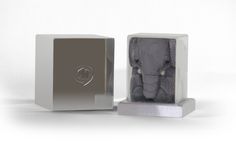
I’d rather have a colonoscopy than watch reality tv, but there’s one show I never miss.
ABC’s Shark Tank.
Premiering in 2009 and still going strong, it’s the most-watched program on Friday nights.
Hopeful entrepreneurs go on the program and present their business idea to a panel of self-made millionaire investors (Sharks) with a goal of convincing at least one Shark to invest in their concept in exchange for a stake in their company.
First comes the pitch… portable urinals that look like a golf club, remote-controlled bird feeders that allow you to “zap” pesky squirrels, and man candles designed to freshen your house but still leave it smelling like a man.
What’s not to love?
Next, the sharks (Mark Cuban, Lori Greiner, Kevin O'Leary, Barbara Corcoran, Daymond John, Robert Herjavec are the most famous) start to circle around their prey...firing questions that would make any business owner feel like they were literally swimming in shark-infested waters.
And this is where the gold is for all of us entrepreneurs. Whether your business is a start-up or an established company, here are four not-to-be-ignored lessons from the Sharks:
“I think passion is overrated. Everyone has a lot of passions. I have a passion for sports – a passion for music. That doesn’t make it a business, and that doesn’t make you qualified to run the business.” –Mark Cuban
 Take newly married husband/wife creators of “Elephant Chat.” They invested $100,000 of their own money into developing a prototype – an acrylic cube with a small stuffed elephant inside the cube that one spouse could set out to signal to his/her partner that they wanted to talk about something bothering them, hence “the elephant in the room.”
Take newly married husband/wife creators of “Elephant Chat.” They invested $100,000 of their own money into developing a prototype – an acrylic cube with a small stuffed elephant inside the cube that one spouse could set out to signal to his/her partner that they wanted to talk about something bothering them, hence “the elephant in the room.”
It retailed for $60. They passionately maintained that all the marriage counselors they talked to thought it was a terrific idea. Needless to say, none of the Sharks took the bait.
Lesson: If your dream doesn’t solve a painful problem that there’s already a market for, it’s not going to make you any money.
As soon as the Sharks figure out the valuation, they want to see if the hopeful entrepreneur knows their numbers: sales, cash flow, debt, customer acquisition cost.
But knowing your business is more than numbers. Damond John, fashion mogul and CEO and founder of FUBU created his empire from knowing this information about his audience:
A perfect example of entrepreneurs who came on Shark Tank without really knowing their industry was a pair of doctors pitching a social network for other doctors. They called their product Rolodoc.
Turns out, the MD’s had no clue how social media even worked – even though their entire business idea hinged on the concept. Unbelievable. Mark Cuban called it the worst pitch in Shark Tank history.
As you can imagine, the Sharks were no “fan” of Rolodoc.
Lesson: Numbers aren’t sexy, but if you don’t how much you’re spending to convert a prospect to a customer, how are you going to move the bottom line?
So let’s talk about the Man Candle. In season two, Johnson Bailey offered 25% equity in The Original Man Candle in exchange for $50,000.
It comes in awesome manly scents like pot roast, draft beer, BBQ, football, golf course, and his best-selling candle…fart smell. He guarantees that 20 minutes of burning the fart candle, and mother-in-laws who have overstayed their welcome will be gone!
The Sharks shared some laughs. But when Bailey didn’t know his numbers, they conclude that it’s too gimmicky and that he doesn’t have the cash or customers to make it work.
They ultimately decide that the deal stinks.
Lesson: Far-fetched ideas, a lack of basic business knowledge, or an undefined market audience won’t grab the interest of investors or customers. Note: Johnson Bailey’s website is no longer available nor does there seem to be any more of his infamous candle in stock at Amazon.
In one of the most controversial episodes, entrepreneur Paul Watts asked the Sharks for $350,000 in exchange for 15% equity in his Graffiti Removal Services that was built on the franchise model.
Sharks Robert Herjavec and Kevin O’Leary (aka Mr. Wonderful) offered the $350K but wanted 75% of the business and suggested that Paul would simply be an employee of theirs.
Paul turned them down, igniting an emotional confrontation between O’Leary and Watts.
"Whaddaymean 'no'? There is no 'no'!" barked O’Leary, prompting Watts to repeat his decision twice, more firmly each time.
In his now-famous quote O'Leary fired, "When you walk out of here, I won't even think of you again. You're dead to me if you turn around."
Paul did and walked away from the deal.
Lesson: On one hand, I have to admire the tenacity Watts displayed. On a personal level... in all three of my businesses, I may have had some down periods but if I stayed the course I won. Because I had proof that my marketing system worked.
On the other hand, these Sharks aren’t billionaires for nothing. They must have seen something worthwhile in the business model to want to buy it and didn’t back down from their offer. If Paul didn’t want to play the part of an employee, he could have trained someone else and enjoyed the passive income that 25% would have brought him.
As entrepreneurs, we’ve all got sharks coming after our businesses. Whether it’s Uncle Sam, competitors, or our own weaknesses – we’ve got to be on top of our game if we don't want to become shark bait.
Is your business producing the results that you want?
As they say in the Shark Tank, “Are you IN or are you OUT?”
Seize the day!
[leadpages_leadbox leadbox_id=14555ac46639c5] [/leadpages_leadbox]


